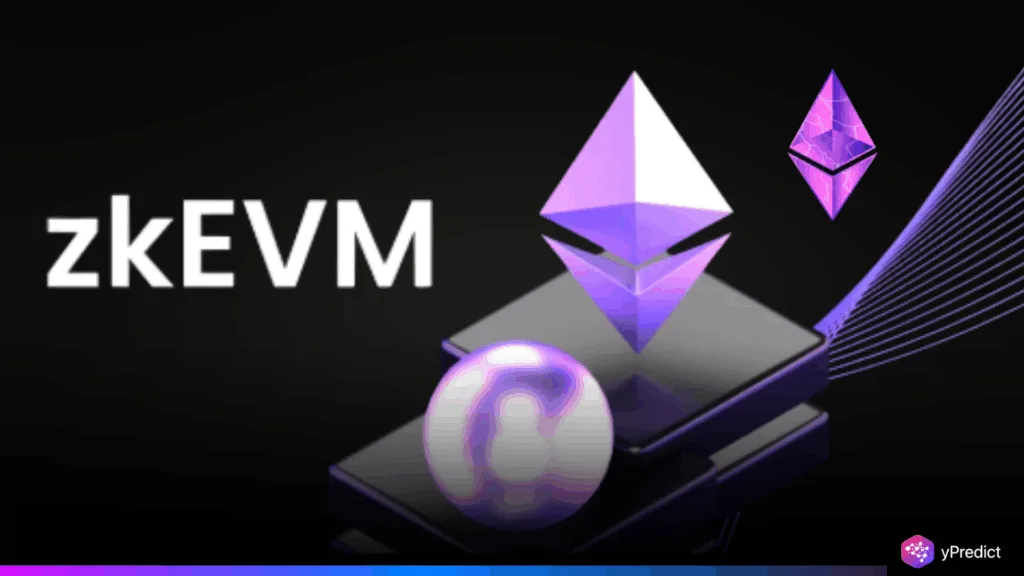
Ethereum’s latest foray into zero-knowledge technology seeks to promote AI scalability and privacy. The Ethereum Foundation has approved the deployment of a Layer 1 zkEVM (Zero-Knowledge Ethereum Virtual Machine), a considerable advancement in the blockchain ecosystem. The zero-knowledge proof technology is being approved at the Layer 1 base layer and applied directly to the Ethereum blockchain infrastructure, which we hope will increase operational capabilities at scale while keeping personal data private and secure. The move arrives just months after the network’s successful Pectra Upgrade and is strategically timed with AI’s growing demand for secure, scalable environments.
Layer 1 Shift Challenges L2 Dominance
Ethereum’s adoption of a Layer 1 zkEVM challenges the long-standing dominance of Layer 2 rollups. Ethereum has shifted its philosophy around how it utilizes on- and off-chain validation to address scale, meaning that instead of trusting off-chain solutions, Ethereum now trusts native, on-chain validation to scale. Ethereum Foundation confirmed in a 12-month rollout timeline that its prioritization has been providing convenient access for developers and improved performance for AI-native dApps.
This transition in acute philosophy from off-chain trust back to base-layer trust highlights Ethereum’s longer-term commitment to base-layer efficiency by minimizing transaction latency and improving throughput. Upon the immediate integration of zkEVM, Ethereum can reduce the burden of transaction overhead for decentralized AI systems and provide an integrated experience rather than the fragmented experiences imposed by diverse layer 2 implementations.
Zero-Knowledge Proofs Enable Crypto Privacy
These cryptographic tools validate transactions without revealing sensitive input data. For AI platforms handling user-generated models or proprietary algorithms, this means confidential computation at scale. Ethereum’s zkEVM architecture ensures that smart contracts can verify results without compromising ownership or user control. This brings a strong crypto privacy layer to emerging AI protocols, which demand secure data handling, especially under intensifying global compliance standards.
Pectra Upgrade Paved the Way
The recently implemented Pectra Upgrade set the groundwork for this next leap. Pectra gave birth to better synchronization times, optimized gas usage for transactions, and improved alignment, not just overall but specifically for the AI infrastructure. The Ethereum developers claim it has never been easier to layer the zero-knowledge protocols on top of the Ethereum chain.
Once Pectra was deployed, the Ethereum native layer could engage in high-frequency actuation of AI-centric transactions while mitigating risks to decentralization. The Ethereum Upgrade also helped restore confidence in the aftermath of the early 2024 market plunge, where prices dropped almost 37 percent due to geopolitical challenges and the mass exodus of investors.
AI Scalability at the Forefront
This Ethereum Upgrade does more than refine core architecture—it repositions Ethereum as a future-ready host for AI applications. AI platforms require a high-speed, private, and interoperable environment. With zkEVM integrated at Layer 1, Ethereum answers that need. The Scalability Boost is now in motion, enabling AI dApps to scale securely while preserving privacy and cost-efficiency.
Ethereum’s Layer 1 zkEVM rollout marks a turning point in AI-focused blockchain infrastructure. By embedding zero-knowledge proofs directly into the base layer, Ethereum delivers a much-needed Scalability Boost without sacrificing crypto privacy. The move strengthens the post-Pectra Ethereum Upgrade roadmap and challenges assumptions about Layer 2 dependence. With a 12-month integration horizon and strong backing from the Ethereum Foundation, this development positions Ethereum to lead in AI-ready smart contract platforms.






